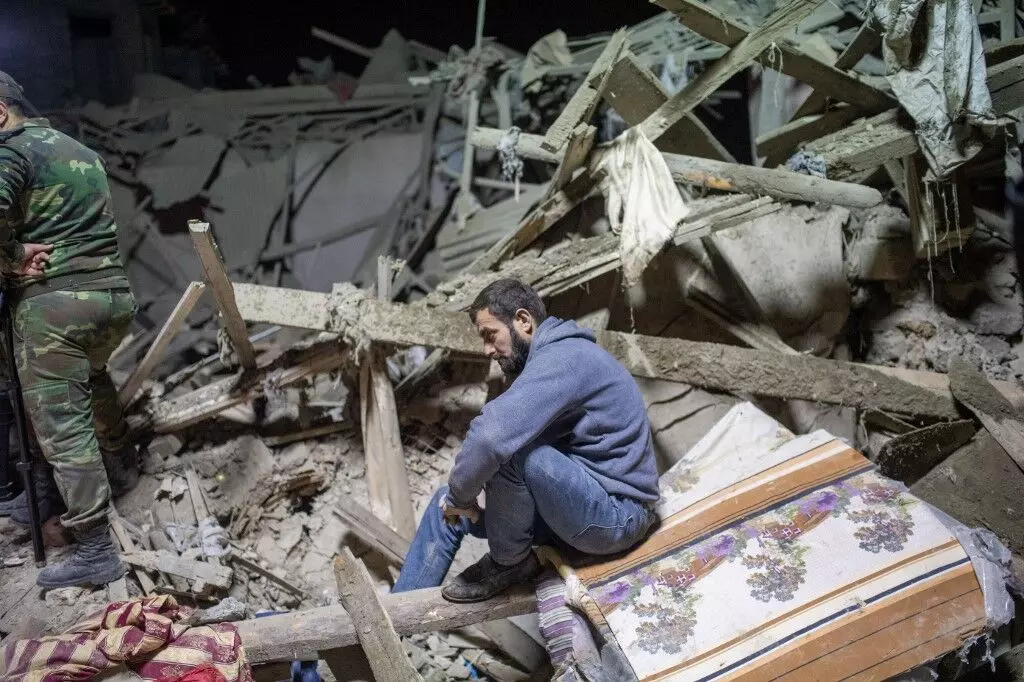
Warring Armenia, Azerbaijan agree to spare civilian targets
text_fieldsA resident sits amid the rubble and awaits the search for his relatives as rescue teams work at a site hit by a rocket during fighting over the breakaway region of Nagorno-Karabakh, in the city of Ganja, Azerbaijan early on October 17, 2020.
Geneva: As prospect for a complete ceasefire between the two seems impossible, Armenia and Azerbaijan have agreed to avoid targeting civilians and residential areas amid the ongoing conflict between the two warring countries over the disputed Nagorno-Karabakh region, according to a joint statement.
The statement was issued late Friday after talks in Geneva between Armenian Foreign Minister Zohrab Mnatsakanyan and his Azerbaijani counterpart Jeyhun Bayramov, along with representatives from France, Russia and the US, reports Xinhua news agency.
The two sides will start to recover and exchange remains on the battlefield, and provide a list of currently detained war prisoners for eventual exchange, according to a statement by the Organization for Security and Cooperation in Europe (OSCE) Minsk Group co-chairs.
They will also provide in writing comments and questions related to possible ceasefire verification mechanisms, it added.
Earlier in the day, the Co-Chairs of the OSCE Minsk Group, namely Igor Popov of Russia, Stephane Visconti of France, and Andrew Schofer of the US, met separately and jointly with Foreign Mnatsakanyan and Bayramov.
The joint statement added that the co-chairs will continue working with the sides intensively to find a peaceful settlement of their latest conflict.
Friday's development came after the collapse of the latest US-brokered ceasefire reached between Armenia and Azerbaijan over the Nagorno-Karabakh region.
Shortly after coming into effect at 4 a.m. (local time) on Monday, the two sides broke the ceasefire and traded accusations and attacks with each other.
Monday's ceasefire agreement was the third within weeks.
The two other Russia-brokered agreements were reached on October 10 and October 17, but both sides blamed each other for not observing them.
A new round of armed conflict broke out on September 27 along the contact line of the disputed Nagorno-Karabakh region, which is internationally recognized as part of Azerbaijan but mostly governed by the Republic of Artsakh, a de facto independent state with an Armenian ethnic majority.
The area experienced flare-ups of violence in the summer of 2014, April 2016 and in July tjis year.
Armenia and Azerbaijan went to war over the region in 1988-94, eventually declaring a ceasefire.
However, a settlement was never reached.






















